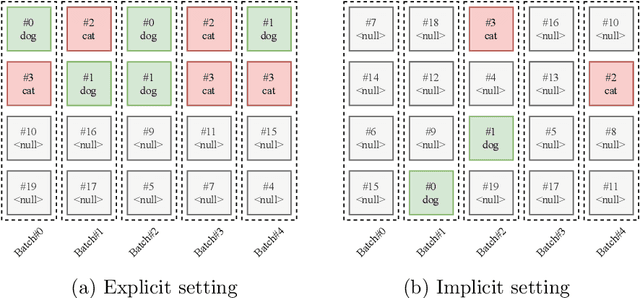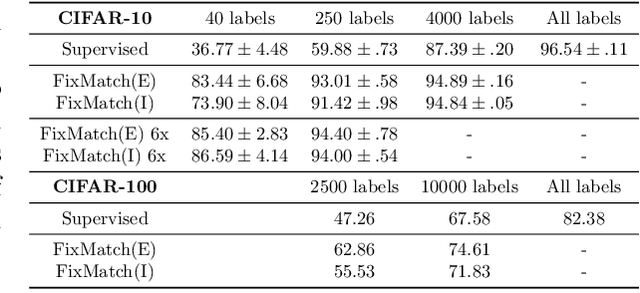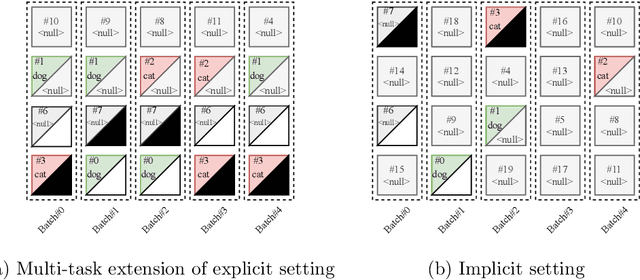An analysis of over-sampling labeled data in semi-supervised learning with FixMatch
Paper and Code
Jan 03, 2022



Most semi-supervised learning methods over-sample labeled data when constructing training mini-batches. This paper studies whether this common practice improves learning and how. We compare it to an alternative setting where each mini-batch is uniformly sampled from all the training data, labeled or not, which greatly reduces direct supervision from true labels in typical low-label regimes. However, this simpler setting can also be seen as more general and even necessary in multi-task problems where over-sampling labeled data would become intractable. Our experiments on semi-supervised CIFAR-10 image classification using FixMatch show a performance drop when using the uniform sampling approach which diminishes when the amount of labeled data or the training time increases. Further, we analyse the training dynamics to understand how over-sampling of labeled data compares to uniform sampling. Our main finding is that over-sampling is especially beneficial early in training but gets less important in the later stages when more pseudo-labels become correct. Nevertheless, we also find that keeping some true labels remains important to avoid the accumulation of confirmation errors from incorrect pseudo-labels.
 Add to Chrome
Add to Chrome Add to Firefox
Add to Firefox Add to Edge
Add to Edge